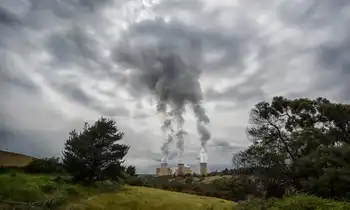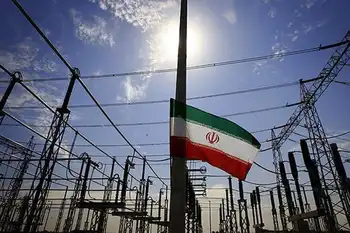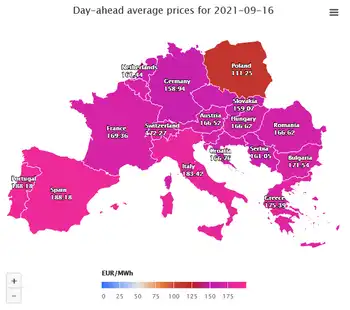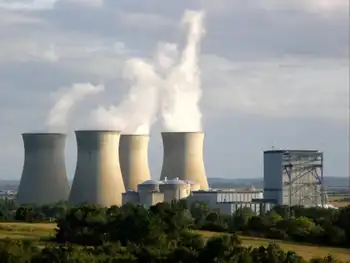Provinces could get say on Kyoto regulations
OTTAWA, ONTARIO - Environment Minister Stéphane Dion is signalling a willingness to accommodate provinces clamouring for a say on regulations limiting greenhouse gas emissions.
On the day the Kyoto accord on climate change came into effect, Dion said there will be national standards for industrial greenhouse gas emitters. But he is prepared to consider differing ways of enforcing them in the case of provinces like Alberta, which is home to some of the country's biggest polluters
Negotiations with the provinces continue but "nothing has been settled in detail," he said.
The Kyoto Protocol, signed in the Japanese city in 1997 and ratified by 140 countries including Canada, imposes legally binding requirements on 35 industrialized states to stem greenhouse gases, including carbon dioxide, and reduce emissions by 6 per cent relative to 1990 levels by 2008-2012. The United States, the world's biggest polluter, pulled out in 2001.
Dion and Prime Minister Paul Martin yesterday marked Kyoto's implementation at a news conference in Montreal, where they confirmed an international climate-control conference will take place in the city this fall.
"We are entering a new era in international efforts to address and reduce the risk of climate change — and in doing so, to improve the quality of life that will be enjoyed by our children and by future generations," Martin said.
Federal officials said the government hopes the coming conference can shift the focus away from the specifics of emissions targets to a broader discussion of climate change aimed at bringing Kyoto holdouts like China, the United States and India into the fold.
Pointing out that Canada will hold the gavel during the meetings — which are expected to last as long as a month — government officials said "we want to prepare for the next generation of emissions accords."
"This is a special national interest for Canada, as a signatory to Kyoto, we want to broaden beyond those discussions and that can only happen by getting... large emitters on side," said a senior official.
Though the protocol formally came into being yesterday, the first targets aren't slated to be met until 2008 and business groups — which oppose Kyoto on the basis it will cost Canadian jobs — are girding for battle ahead of Ottawa's detailed strategy on how to slash emissions.
Dion has said some of the government's Kyoto agenda will be spelled out in next week's budget — which is expected to have a series of "green" tax incentives aimed at individuals — but that it will still take some weeks for the full roll-out of Ottawa's plan.
The environment minister once again faced a barrage of opposition criticism yesterday with the Conservatives ridiculing Canada's Kyoto efforts as wasteful and improvised, pointing out that emissions have soared more than 20 per cent since Canada signed the treaty.
New Democrat MP Nathan Cullen (Skeena-Bulkley Valley), the party's environment critic, said the government's lack of action amounted to a "humiliation for Canada" and that the meetings this fall will only focus international attention on the Liberals' "abysmal record."
Cullen blamed divisions within the Liberal caucus as the reason the federal government hasn't produced a plan to cut greenhouse gases.
He said an NDP motion that would impose mandatory fuel efficiency standards on light vehicles sold in Canada is one example of the measure that Ottawa should be taking.
The NDP and the Bloc Québécois have pledged to vote against the federal budget next week if it doesn't contain comprehensive plans to fight climate change.
Ontario Environment Minister Leona Dombrowsky said the province is doing its bit to reduce greenhouse gases by closing down the province's five coal-fired power plants by 2007.
Related News
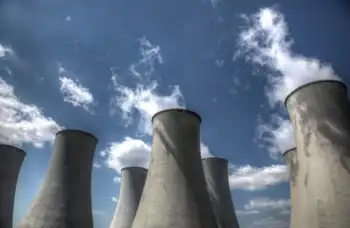
U.S Bans Russian Uranium to Bolster Domestic Industry
RUSSIA - In a move aimed at reducing reliance on Russia and fostering domestic energy security, the United States has banned imports of Russian uranium, a critical component of nuclear fuel. This decision, signed into law by President Biden in May 2024, marks a significant shift in the U.S. nuclear fuel supply chain and has far-reaching economic and geopolitical implications.
For decades, Russia has been a major supplier of enriched uranium, a processed form of uranium used to power nuclear reactors. The U.S. relies on Russia for roughly a quarter of its enriched uranium needs, feeding the nation's network of…

